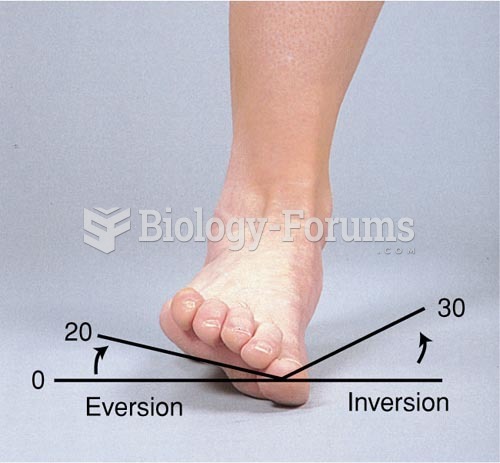This topic contains a solution. Click here to go to the answer
|
|
|
Did you know?
Limit intake of red meat and dairy products made with whole milk. Choose skim milk, low-fat or fat-free dairy products. Limit fried food. Use healthy oils when cooking.
Did you know?
Disorders that may affect pharmacodynamics include genetic mutations, malnutrition, thyrotoxicosis, myasthenia gravis, Parkinson's disease, and certain forms of insulin-resistant diabetes mellitus.
Did you know?
Oliver Wendell Holmes is credited with introducing the words "anesthesia" and "anesthetic" into the English language in 1846.
Did you know?
About 3% of all pregnant women will give birth to twins, which is an increase in rate of nearly 60% since the early 1980s.
Did you know?
The first war in which wide-scale use of anesthetics occurred was the Civil War, and 80% of all wounds were in the extremities.
 (a) Mean duration (days) and (b) average maximum depth (mm) of snow cover throughout northern latitu
(a) Mean duration (days) and (b) average maximum depth (mm) of snow cover throughout northern latitu
 Mobilize the ankle using the heels of the hands. Place a palm on either side of the ankle just below ...
Mobilize the ankle using the heels of the hands. Place a palm on either side of the ankle just below ...





